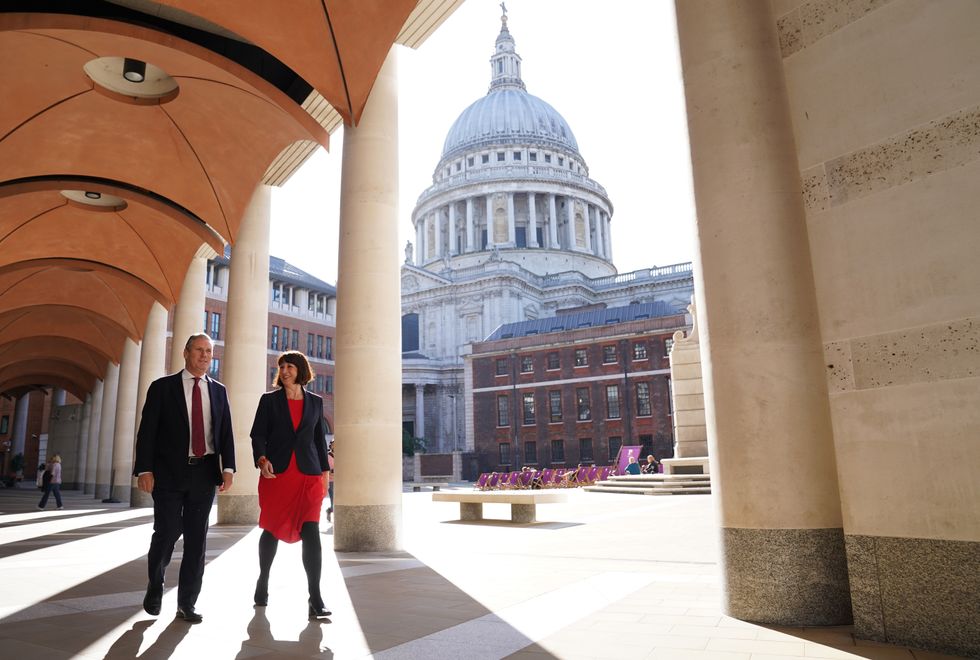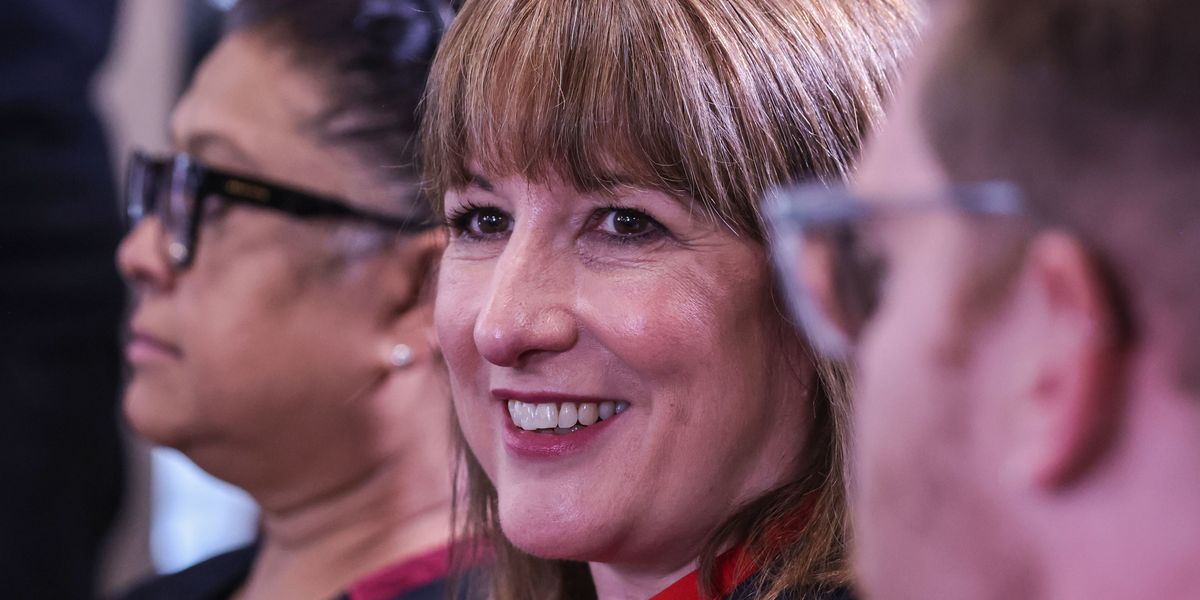Rachel Reeves is set to attempt a Margaret Thatcher-style “Big Bang” by promising to cut regulation on banks this week.
In what will be her first solo public address since tearing up in the Commons, the Chancellor will use her Mansion House speech to urge the sector to place its faith in Britain – and put staff here too.
She is also planning to announce plans to cut restrictive regulations on banks and financial services firms.
A Treasury source said: “Millions of Britons work in financial services, but for too long red tape and excessive regulation has choked off innovation and growth in the economy.
“Well, no more. Britain is entering a new era.
“We will slash regulation and make the UK the best place in the world to do business.

PICTURED: Keir Starmer and Rachel Reeves on a visit to the London Stock Exchange in 2023
PA

In 1986, the Thatcher Government carried out a sudden deregulation of the City – the ‘Big Bang’
GETTY
In 1986, the Thatcher Government carried out a sudden deregulation of the City – and London Stock Exchange – which cemented London’s place as this side of the Atlantic’s financial capital.
If such a “bang” happens again, it could uproot the “sluggish” underlying growth which top economist Julian Jessop warned of, writing for GB News.
“The economy is set to grow by little more than one per cent over 2025 as a whole, little changed from last year, and well short of the numbers needed to fix the public finances,” Jessop wrote for Britain’s News Channel.
“With no sign that Government spending is being brought back under control, Rachel Reeves may have to come back with even more tax increases in the Autumn Budget. In the meantime, business and consumer confidence are still fragile.”

A 2025 ‘Big Bang’ could uproot Britain’s ‘sluggish’ underlying growth
PA
Labour had made growth a core manifesto promise – despite the Tories’ attack line that they had left Britain with the fastest-growing economy in the G7.
And over the course of this year, the Treasury has blamed external factors for Britain’s stagnant growth rates.
“If you dig into the numbers, it shows that trade and production are weak,” the Chancellor previously told GB News.
“I think that reflects the tariffs that came in April.”
